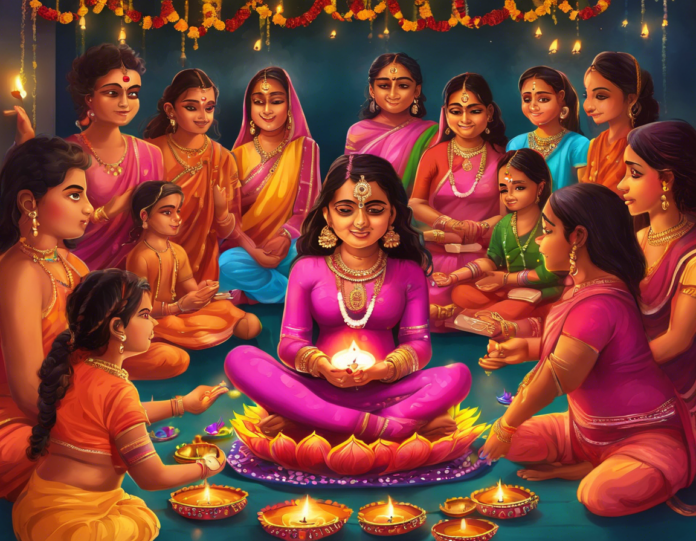Introduction
Diwali is one of the most celebrated festivals in India and is known as the festival of lights. It signifies the victory of light over darkness and good over evil. Diwali is celebrated with much enthusiasm and fervor across the country, with families coming together to perform Puja (a form of worship) to seek the blessings of the divine.
One of the most important aspects of Diwali celebrations is the Diwali Puja, which is performed at a specific time according to Hindu traditions. Performing the Puja at the auspicious time is believed to bring prosperity, happiness, and good fortune to the household. In this ultimate guide, we will delve into the Diwali Puja Time 2023 and all the essential details you need to know to make your Diwali celebrations special.
Significance of Diwali Puja Time:
Diwali Puja is performed during a specific time known as the Muhurat, which is determined based on the panchang (Hindu calendar). Performing the Puja during the auspicious time is believed to enhance the positive effects and bring blessings to the devotees. It is essential to perform the Puja during the designated time to ensure that it is done correctly and aligns with the cosmic energies.
Diwali Puja Time 2023:
In 2023, Diwali will be celebrated on Saturday, 28th October. The Diwali Puja Time will vary depending on the location and time of the Sunrise. It is crucial to consult the local panchang or a Hindu priest to determine the exact time for performing the Puja in your city.
Diwali Puja Vidhi:
The Diwali Puja is performed following a specific ritual known as the Puja Vidhi. Here are the steps involved in performing the Diwali Puja:
1. Cleanse the House: Before starting the Puja, it is essential to clean the house and decorate it with flowers and lights to welcome the divine presence.
2. Gather the Puja Samagri: Collect all the necessary Puja items, including diyas, incense sticks, flowers, sweets, fruits, coconuts, sweets, holy water, turmeric, kumkum, betel leaves, camphor, sandalwood, rice, and sacred thread.
3. Setup the Puja Place: Create a designated Puja area in your house, preferably facing east or north direction. Place a clean cloth and establish the deity idols or pictures.
4. Perform Kalash Sthapana: Fill a copper pot with water and place mango leaves on its opening. Place the Kalash near the Puja area as a symbol of prosperity.
5. Light Diyas and Incense Sticks: Light the diyas and incense sticks to purify the surroundings and create a sacred atmosphere.
6. Offer Prayers: Offer prayers to Lord Ganesha and seek his blessings before commencing the Diwali Puja.
7. Perform Lakshmi Puja: Invoke Goddess Lakshmi and offer flowers, sweets, and fruits as prasad. Chant mantras dedicated to Goddess Lakshmi to seek her blessings.
8. Aarti: Conclude the Puja by performing aarti for Goddess Lakshmi and Lord Ganesha. Distribute prasad to the family members as a symbol of prosperity and happiness.
Frequently Asked Questions (FAQs):
Q1: What is the significance of Diwali Puja Time?
A: Performing the Diwali Puja at the auspicious Muhurat is believed to bring prosperity, happiness, and good fortune to the household.
Q2: How is the Diwali Puja Time determined?
A: The Diwali Puja Time is determined based on the Panchang, which is a Hindu calendar that provides auspicious timings for various rituals.
Q3: Can I perform the Diwali Puja at any time during the day?
A: It is advisable to perform the Diwali Puja during the designated Muhurat to ensure the maximum benefits and blessings.
Q4: What are the essential Puja items required for Diwali Puja?
A: The essential Puja items for Diwali Puja include diyas, incense sticks, flowers, sweets, fruits, coconuts, holy water, turmeric, kumkum, betel leaves, camphor, sandalwood, rice, and sacred thread.
Q5: Can I perform the Diwali Puja without a priest?
A: Yes, you can perform the Diwali Puja at home following the Puja Vidhi and seeking guidance from online resources or books.
Q6: What are the benefits of performing the Diwali Puja?
A: Performing the Diwali Puja is believed to bring prosperity, wealth, harmony, and happiness to the household.
Q7: Can I customize the Diwali Puja rituals based on my family traditions?
A: Yes, you can add personalized rituals or traditions to the Diwali Puja while ensuring that the essential Puja steps are followed.
Q8: How long does the Diwali Puja usually last?
A: The duration of the Diwali Puja can vary based on the family traditions and rituals, but it typically lasts around 1-2 hours.
Q9: Can children participate in the Diwali Puja?
A: Yes, children can be encouraged to participate in the Diwali Puja by helping with decorations, offering prayers, and distributing Prasad.
Q10: What should I do with the Prasad after the Diwali Puja?
A: The Prasad can be distributed among family members and shared with neighbors and friends as a symbol of goodwill and blessings.
Conclusion:
Diwali Puja is a sacred tradition that brings families together to seek the blessings of the divine and usher in prosperity and happiness. By performing the Diwali Puja at the auspicious time and following the rituals with devotion, you can attract positive energies and blessings into your life. May this Diwali be filled with joy, light, and abundance as you embark on this auspicious spiritual journey.

